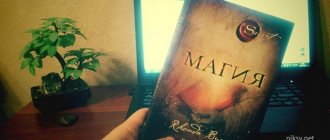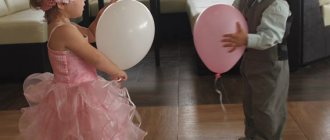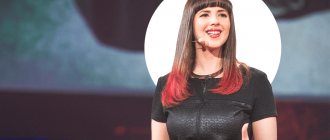The number of speech units that a first-grader knows is only 2000, a student’s stock is about 10,000, and a professor’s is more than 50,000. In our daily life, we touch only a small fraction of the lexical “storehouses”, and we expand our meager vocabulary by only 1 vocabulary unit over the course of weeks.
How to speed up this process? How to learn to speak beautifully? How to stop frantically selecting synonyms in your head when you want to express your thoughts as literary and intelligent as possible?
15 best antidepressant books: read books and cheer up!
The answer is simple: read the right books!
First of all, of course, we are talking about the classics, but there are also books whose task is to teach us to speak beautifully.
Here is a list of the best of them.
Zen in the Art of Writing
Author: Ray Bradbury.
A book that can be pulled apart for quotes. Many readers deservedly call it a literary masterpiece and the best work of the author, despite the fact that here the reader spoiled by science fiction will not find the usual genre - the book contains essays from different years, as well as real stories told by Bradbury with “notes” for beginning writers.
Of course, this book is primarily aimed at beginning writers, but it will undoubtedly be useful for those who want to speak beautifully, because who else can learn eloquence from, if not from a literary genius?
The book will be useful for both adults and the younger (already thinking) generation.
Fiction
Most serious works of art were studied in school. This was not done in vain: while reading the classics, a person gets acquainted with the basic concepts of morality, the basic principles of life, history, culture, and expands his horizons with various terms.
Most modern literature has become formulaic and primitive - in classical fiction you will find much more useful thoughts and expressions to enrich your language. Your speech will sound more refined and correct. It is not for nothing that it is believed that the best books that develop speech are classic books.
Pay attention to the following books that develop vocabulary:
- F. M. Dostoevsky “Crime and Punishment”, “Idiot”;
- M. A. Bulgakov “The Master and Margarita”, “Heart of a Dog”, “Notes of a Young Doctor”;
- I. S. Turgenev “Fathers and Sons”, “Notes of a Hunter”, “Noble Nest”;
- L. N. Tolstoy “War and Peace”, “Anna Karenina”, “Sevastopol Stories”;
- E. M. Remarque “Three Comrades”;
- D. London "Martin Eden".
The last book, by the way, is partly autobiographical. It is useful to read such books - you will be able to feel the author’s era from the inside, appreciate the historical and cultural situation of that time and better understand other works of this writer.
How to talk to anyone, anytime, anywhere
Author: Larry King.
As life shows, each of us is capable of maintaining a professional conversation on 1, maximum 2-3 topics in which he is able to feel like a “fish in water”. We grab everything else at the top, trying to remain silent more or nod and smile in a conversation with a serious interlocutor who is well “floating” in the topic.
But Larry King is able to talk about everything. And even those who have never watched his show in their lives have heard about this man. This “chatter” guide from King will be of interest to everyone, thanks to its applicability in absolutely all cultures and on all continents, despite the fact that all the examples given in the book “come from the USA.”
Olga Gromova “No Bib”
The series was developed specifically for children and includes, in addition to “No Bibika,” the books “Top-Top,” “Boom,” “Don’t Cry, Bunny” and others. You will be able to talk to your child by showing him pictures and engaging him in communication with gestures and words. Kids enjoy participating in games and, along the way, learn new phenomena, objects and their names.
The book contains colorful, large illustrations that are accessible to children. Simple texts compiled by a specialist are interesting to children and encourage them to pronounce new words. In addition to the main text, the book contains recommendations for parents to help teach their child to communicate with words and gestures.
© Elena Staretskaya, BBF.RU
Black rhetoric. The power and magic of words
Author: Karsten Bredemeier.
This author is known as a real “pro” and even a guru in the field of human relations. No one knows whether this is true, but many famous people, after reading Bredemeier, follow his “precepts” exactly.
Of course, this textbook will not be a panacea for future speakers, but in combination with practice and consolidation, the material will very much help to increase your oratorical weight.
15 most interesting and useful books for teenagers
"The Power of Habit" Charles Duhitg
The author argues that all human behavior is based on habits. Most often, habits are so strong that they completely control a person. It is difficult to change the situation, but it is possible. It is enough just to replace existing habits with those that only bring benefits. To do this you need to be patient and willpower. To begin with, you should force yourself to do simple things regularly: make your bed, brush your teeth, do exercises. This alone can significantly change life for the better.
Russian with dictionary
Author: Irina Levontina.
This bibliographic rarity is a very high-quality guide, created from articles written by authors at different times about the changes taking place in the Russian language.
Of course, like everything in this world, language is constantly changing. But, unlike the “old” linguists, who are saddened by the modern impoverishment of the language, the author believes that the situation is exactly the opposite.
In the book you will find a lot of new and useful things for the development of your speech and for yourself in general, you will learn about the formation of language and its simplification, you will smile along with the author (the book is written with humor and contains many personal observations of the author) and at the same time you will unwittingly get involved in training your own speech.
What do smart people read for spiritual development and intelligence?
Literature that can trigger thinking processes and help activate memory is suitable. Wanting to increase their IQ level, many people rely on the number of books they read. If the plot is not captivating, the exercises described seem ridiculous and useless, then it is better to put the book down and move on to the next one. Just reading will not make a person smarter , since the material will not be applied in life.
What smart things to read and how to raise your intellectual level?
Works of Edward de Bon . If you want to learn how to think differently, and are ready to break away from the standards, then start with the book “Six Thinking Hats.” While studying the material, you will have the opportunity to play. To get results, act and complete the author’s instructions. The book is interesting due to the inclusion of various life situations, to which the reader is invited to choose his thinking hats. Practical exercises help make thinking original and non-standard. Another entertaining book by the author is “Teach Yourself to Think.” The plot is based on Edward's technique, which helps instill in the reader the skill of wanting to learn and develop. The proposed methodology is aimed at improving the thinking mechanism. The book can be called a self-instruction manual, as it includes 5 stages. Gradual implementation of steps leads to the desired result. Books by Ron Hubbard . The book “Teaching Technology” received good reviews. It is a textbook whose main task is to teach the reader to learn. People who followed the author's tips increased their intellectual level by 15%. Ron Hubbard is convinced that a person's IQ is formed from several components. And the main one is the ability to learn, or in other words, the systematic acquisition of new information throughout a person’s life. In the book “Self-Analysis” the author focuses on human memory. If you don’t remember an interesting fact or historical information in a timely manner, then there’s no point in talking about intellectual development. The books you read will be forgotten after a few days if your memory is not fully activated. The book contains practical recommendations that help a person improve himself. The author pays special attention to visual memory, believing that there is a possibility of its development.
"Memory development for dummies . The title of the book makes clear its main purpose. Before you start studying, take it as a basis that there are no universal and simple ways to improve memory. To achieve results, techniques are combined. The more ways you use, the better the effect. Interestingly, the combination of methods brings results regardless of age. John Bogosian Arden, the author of the book, is confident that the properties of memory are the same in a student and a pensioner, and therefore can be developed in the same way.
Before you start reading books, check your level of intellectual development . There are tests on the Internet and suggested times for completing tasks. On your first playthrough, don’t rush to invest within the deadline. By answering test questions, you are already developing as you solve problems and puzzles. The data obtained will help you decide in which direction to move, what you lack: vocabulary, creative thinking, and the ability to memorize information. Then start correcting the situation by studying and practicing the suggested books.
A word about words
Author: Lev Uspensky.
This author is well known to teenagers and children, but adults can read the book “A Word about Words” without a shadow of embarrassment. A real literary treasury about the language in general and about our native Russian in particular.
Where do the legs of misspelled words come from, which letters are considered the rarest or most expensive in the world, what are “mumziki” for, etc. Lev Uspensky will answer all questions in an accessible manner - for mothers, fathers and teenage children.
If your life is directly connected with the word, if you want to understand your history more deeply, this masterpiece is for you.
"The Innovator's Dilemma: How New Technologies Kill Strong Companies" by Clayton M. Christensen
entrepreneur.com
Sometimes industry leading companies lose their position in the market - this happens suddenly, but in fact such an outcome can be predicted. According to Clayton, when a company enters a new niche or when new technologies spread to the market, the enterprise has a chance to fail. The author proves with convincing examples: it is during the period of takeoff that management should be most attentive to their company in order to avoid failure.
Read
I want to speak beautifully! Speech techniques
Author: Natalya Rom.
None of us were born speakers. You have to learn to speak beautifully, sometimes long and painfully. For a speech to be convincing, not only speech patterns are important, but also literacy, emotionality, and the ability to captivate the listener or reader.
You need to speak not only beautifully and clearly, but also legibly and expressively. The speaker’s task is not just to hold the listener’s attention, but to make him fall silent while inhaling and with his mouth open in admiration, even if the listener does not share the views of the speaker.
Natalya Rom will teach you how to control your speech and voice.
Poetry
Many people don't take poetry seriously. But this genre works wonders in terms of developing beautiful speech and thinking. It is not for nothing that during ancient oratory competitions they recited poems by famous poets of that time.
Poems develop memory, teach you to express yourself easily and clearly. In an unfamiliar situation, you will quickly remember the right words, and in an argument you will not remain silent on the sidelines. Poetry sharpens diction. It’s not for nothing that people who have problems with pronunciation and are looking for an answer to the question: how to develop diction - memorize poetry - it’s like a type of tongue twister, only more meaningful.
Be sure to read:
- Shakespeare's sonnets;
- poems by A. S. Pushkin;
- A. A. Akhmatova - collections of poems “Evening”, “The Running of Time”, “White Flock”;
- M. Yu. Lermontov “Demon”;
- I. A. Brodsky “Collected Works.”
An undoubted advantage of poetry is the variety of topics. There are poems about love, about nature, space, science, people's lives, society - this will undoubtedly quickly improve your horizons.
Kama Sutra for the speaker
Author: Radislav Gandapas.
Naturally, the name is a kind of provocation and advertising gimmick. But not only! The author also put into the title the idea that everything that is done with pleasure is simply bound to be crowned with success.
In addition, the author draws some analogies (with examples) that prove that the connection between the speaker and his audience is an almost intimate phenomenon. Radislav Gandapas will teach you not only the correct manner of communication, but will also tell you how to get rid of trembling knees “on the podium,” keep the attention of your listeners and deal with eye contact.
This “Kama Sutra” will be especially useful for people who often have to communicate with people, speak at seminars, give presentations, etc.
Book bestsellers of all time - 15 of the world's most widely read masterpieces that everyone simply must read!
Tatyana Kulikovskaya “Expanding the vocabulary of children 2-4 years old”
Speech therapist Tatyana Kulikovskaya wrote this book so that parents could teach their child correct speech. Teaching children begins with onomatopoeic words: meow-meow, aw-aw, etc. and gradually moves on to more complex words. Lessons with your child will not take more than 10 minutes a day, but the basics of speaking will be laid. The benefit is necessary if the child already has speech problems. With the help of this book, parents will help their child learn simple words and become familiar with phenomena and objects.
Secrets of good speech
Authors: I. B. Golub and D. E. Rosenthal.
Many generations have grown up on the benefits of these authors. And a considerable number of journalists and philologists grew up from these generations.
In this textbook, professionals in their field help you get rid of mistakes and speak correctly, no matter how old you are or what your level of training is.
The book is created in an entertaining form, so you don’t have to tune in to “boring reading”, but enjoy good literature, remembering the main techniques of oratory.
“Eight rules of efficiency. Smarter, Faster, Better" Charles Duhitg
Charles Duthig is back on the list with another worthwhile read, Smarter, Faster, Better. The author invites the reader to prioritize 8 main issues that need to be addressed, and suggests methods for finding these solutions. He bases his recommendations on neuroscience research. Roughly speaking, this science studies behavior, the concept of willpower, motivation, happiness, depression and more. The author talks interestingly about motivation. Having studied all this, you can significantly develop your intellect, as well as qualitatively change your life.
From Adam's apple to the apple of discord
Author: Vadim Khrappa.
The question “what to read to broaden your horizons” is heard more and more often today. And just as often, useful answers include advice to “read dictionaries.”
But, for example, etymological dictionaries, although very useful, are (and no one will argue with this) still boring. Therefore, Vadim Khrappa decided to study it himself and collect his most interesting notes in a book.
About the mistakes that we make, about complex and strange phraseological units, about how to correctly use certain expressions - in this interesting (unlike a dictionary) manual.
Scientific literature
Scientific literature is not at all boring books about new research by scientists. Often, such materials, which simultaneously develop speech and vocabulary, help to better understand what is happening around.
You will definitely come across new terms, thanks to which you will learn to explain what is happening more competently and concisely. From the outside, you will look like a scientifically savvy person, which will undoubtedly add points to you as an interlocutor.
It is recommended to study the following books:
- about evolutionary biology - R. Dawkins “The Selfish Gene”, “The Greatest Show on Earth”, “The Blind Watchmaker”;
- about psychology - E. Muir “Self-confidence”, D. Ariely “The whole truth about lies”, R. Cialdini “Psychology of influence”;
- about physics and mathematics - D. Derbyshire “Simple Obsession”, M. Kaku “Physics of the Impossible”, S. Hawking “Three Books about Space and Time”;
- about political science - E. Fromm “Flight from Freedom”, N. Machiavelli “The Prince”.
Get a subscription to scientific magazines and newspapers. Scientific discoveries are a very interesting and amazing topic. Speech improves through diversity: it is necessary to read books of different styles so that the vocabulary is more extensive.
In addition, this way you will allow your brain to rest - it needs to be constantly “switched” between types of learning activities so that the effectiveness of your aspirations does not decrease.
To begin, choose the direction that interests you most. And then read the book in a direction you never understood - you will discover a lot of new things if you don't close the volume in the first pages and have patience.
The Russian language is on the verge of a nervous breakdown
Author: Maxim Krongauz.
Language changes as rapidly as we do. Alas, it becomes impoverished and acquires new words that make many of us wrinkle our noses - swear words, jargon and various borrowings, they irritate and awaken the desire to talk about the “lost generation”, “death of the language”, etc.
The author, who masters the topic at a professional level, will gracefully and with humor help you answer the main questions and awaken a true interest in the Russian language.
A really useful book that will give you many pleasant moments and the right thoughts.
“Risking my own skin. The Hidden Asymmetries of Everyday Life by Nassim Nicholas Taleb
“Risking Your Own Skin” is part of the Incerto (“Uncertain”) series, which addresses four main issues: the uncertainty of knowledge, symmetry in relationships between people, the distribution of information and rationality in complex world systems.
In his new, sharply provocative and at the same time extremely pragmatic book, Nicholas Nassim Taleb talks about how important it is to identify and filter nonsense, to distinguish theory from practice, superficial competence from the real one. You will learn what rationality is in complex systems and the real world, how symmetry and asymmetry are expressed, and what the logic of risk taking is.
Bringing new meaning to familiar concepts such as “a just society,” “professional success,” and “personal responsibility,” and without fear of hurting the egos of established idols, Taleb debunks the hypocritical ideas and actions of military apologists, stock market investors, and religious preachers. Using the examples of Hammurabi and Jesus Christ, Roman and Byzantine emperors, Seneca and Donald Trump, Taleb shows that the most important quality that unites renowned heroes, selfless saints and brilliant businessmen is not to transfer risk to others.
Read
Vladimir Nabokov. Pinhole camera
BUY A BOOK
Nabokov was nominated four times for the Nobel Prize in Literature. The writer's books are famous for their unpredictable plots and subtle work with the emotions of the characters. The novel “Camera Obscura” fully corresponds to Nabokov’s signature style and can rightfully be considered one of the most outstanding works of the 20th century.
The main character of the novel “Camera Obscura” is art critic Bruno Kretschmar. His life was wonderful: an outstanding career, beloved daughter and wife. However, everything changes when Bruno meets a poor young girl working as an usher at the cinema. He falls in love and this feeling seems to him to be the only real one in the world. However, the name “Camera Obscura” is not accidental - everything that happens is just a distorted and inverted image of reality.







